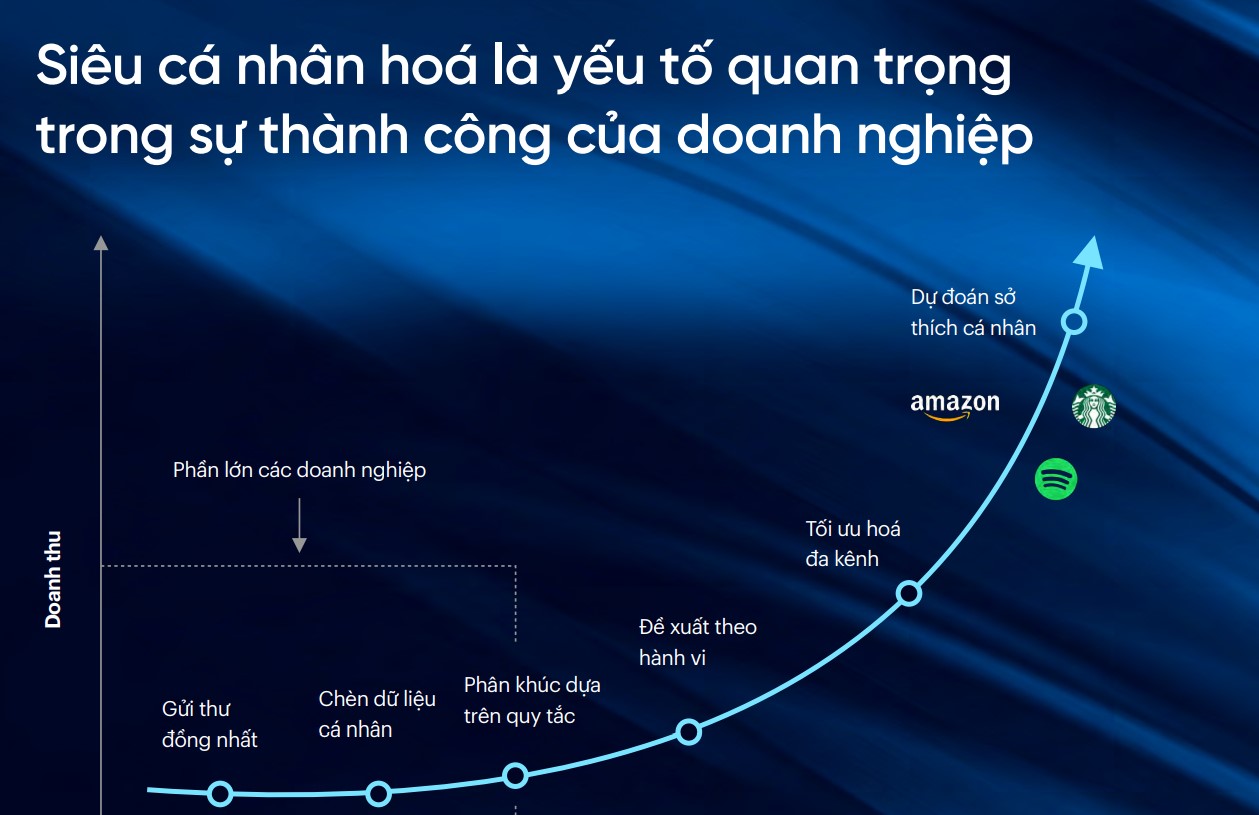The AI landscape in 2024
Faced with the pressure to innovate deeply to stay competitive, and in that context, artificial intelligence (AI) has become a strategic factor, helping businesses not only improve operational efficiency but also promote innovation in the approach to the market and customers.
Statistics from Golman Sachs bank show that global investment in AI is expected to reach 160 billion USD by 2025, an increase of more than 20% compared to 2024. The US is the leading country in investment, with stable growth and maintaining a large gap compared to other regions.
2024 marks a dramatic expansion of AI from widely deployed core applications like supply chain management and healthcare, to reshaping how businesses predict customer behavior and optimize complex operational processes.
According to the latest DX report from FPT Digital citing data from global consulting firm McKinsey, 72% of businesses worldwide have integrated AI into core operations, and this number is expected to increase significantly in the coming years.
AI Trends in 2025
According to experts, by 2025, AI (artificial intelligence) will enter a phase of comprehensive development with breakthrough technologies such as GenAI, Quantum AI (quantum artificial intelligence), hyper-personalization models... bringing breakthroughs in business operations of enterprises.
For example, with the trend of hyper-personalization, AI and machine learning algorithms not only rely on customer data but also analyze behavior, situations, and other factors to make predictions and deliver differentiated, accurate, and timely experiences.

Research shows that the average time a customer watches an advertisement is 8 seconds, requiring the message to be short, engaging and immediately impressive; 75% of consumers tend to buy more from brands that provide personalized experiences, meeting specific interests and needs...
Or quantum AI, with its superior power to handle complex optimization problems, offers the opportunity to revolutionize areas such as logistics and pharmaceuticals. For example, Denso Corporation has used Quantum AI to optimize delivery routes in real time, reducing transportation costs by 15% and improving accuracy in supply chain management.
According to experts, 2025 will not only mark a new step forward for AI but also be a test for businesses' ability to adapt and innovate.
Along with the opportunities that AI brings, businesses also face challenges in terms of security, ethics, and human resources capacity. Large-scale AI deployment requires not only infrastructure investment but also a comprehensive integrated strategy, from human resource training to transparent data governance.
According to Mr. Tran Huy Bao Giang, General Director of FPT Digital (under FPT), “Capturing AI trends not only helps businesses create practical values, such as improving operational efficiency, increasing customer access through digital platforms, optimizing operating costs, but also opens up many opportunities to create new business models.
In other words, in the context of rapidly developing technology, understanding and properly applying AI helps businesses not only adapt but also exploit the great potential of new business models, promoting sustainable growth.











